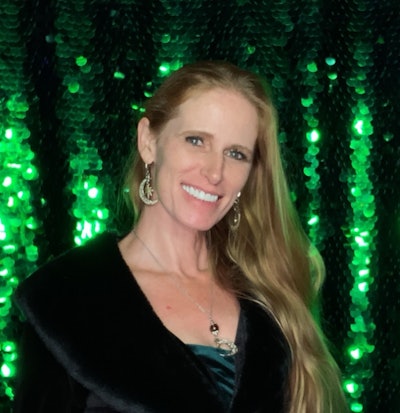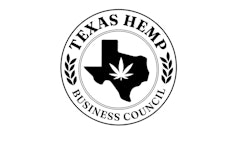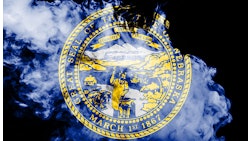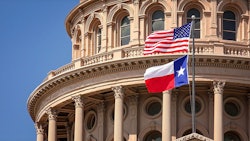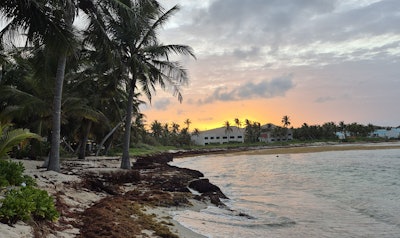
The waves of legal cannabis swell in the gorgeous, clear blue waters of the Caribbean, breaking with teal and white caps gently onto the crystalline sands of the Virgin Islands. A place of exploring and vacationing with its warm yacht-filled waters, partnered with the slow, irie island lifestyles and vast, unfettered beaches, it’s a region rebirthed from colonialism, natural disasters, and years of highly published scandals. It’s a beautiful place to experience the Caribbean's natural bounty.
The U.S. Virgin Islands (USVI) are a series of three main islands and roughly 50 smaller islands and cays. They are owned by the United States, yet have their own local government.
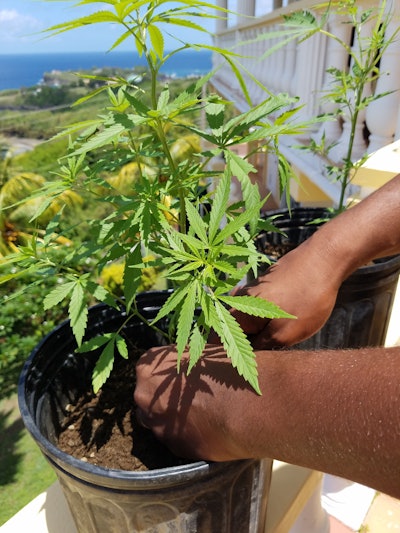 Courtesy of A.C. Moon Cameron
Courtesy of A.C. Moon Cameron
- St. Thomas: “The City,” where the capital city Charlotte Amalie is located, is 32 square miles.
- St. John: “The Suburbia” is an utter paradise of partying at 19 square miles.
- St. Croix: “The Country,” dubbed for its private, quiet hills and beaches tucked away from the world, is the largest island at 82 square miles.
Also, a great adventure, Water Island is less than 2 miles long (when you stand on the hill, you can see a full 360-degree view). And well-known private islands include Great St. James and the now legendary “Epstein Island” (Little St. James), which has been sold to a St. John investor, Stephen Deckoff, and remains vacant.
USVI was bought from the Danish in 1917 and was used as a military base to protect the Panama Canal. It remains a powerhouse position with lush bush, Caribbean breezes, rich culture and the fact of it being the only Caribbean waters owned by the United States.
A true paradise and easily reachable—passports are not required for U.S. citizens, and the coconut and mango groves have recovered from the years of hurricane damage—it now has reached a peak potential in its rebuild, with a soon-to-be-booming cannabis sector unlike ever before seen.
Cannabis society in the Virgin Islands stems from the Rastafari culture, with a sprinkle of imported or French knowledge. These islands are the one space where American and Caribbean culture come together, and it's begun having a global impact at a fast pace, ready to crash waves in the never-before-seen legal commerce sector: one created with consciousness for the people and hopefully the environment.
Medical cannabis was first legalized in the USVI when Gov. Albert Bryan Jr. signed the Medical Cannabis Patient Care Act into law in January 2019, but a program never came into structure. Years later, the excitement of the territory became palpable as we all reviewed and ushered in the Virgin Islands Cannabis Use Act (Act 8680) to legalize adult use and regulate a commercial marketplace, which Bryan signed on Jan. 18, 2023.
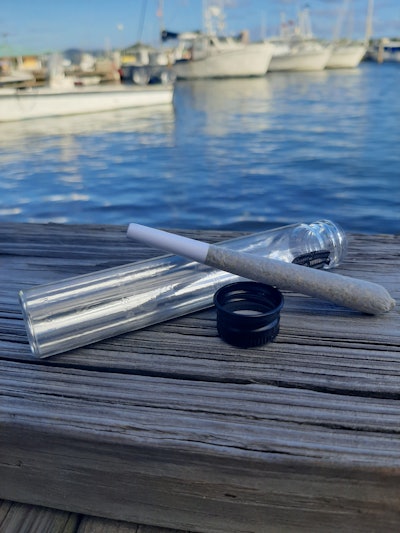 Courtesy of A.C. Moon Cameron
Courtesy of A.C. Moon Cameron
Tiers of licenses and portals for verification have now been created, with the Office of Cannabis Regulation (OCR) working diligently to open a fair system.
The OCR has completed the first round of license applications for micro-cultivation permittees to grow up to 50 mature plants and 200 immature plants for a $1,000 annual fee.
Licensing fees for larger cultivators range from $2,500 (for up to 350 mature/1,000 immature plants) to $5,000 (650 mature/2,000 immature) and $7,500 (1,000 mature/3,000 immature).
Act 8680 caps St. Croix and St. Thomas at 15 cultivation licenses per island, while St. John can issue up to five cultivation licenses.
Currently, applications are open for retail establishments to apply. Aspiring dispensary operators are on the hook for a $10,000 non-refundable application fee and, once licensed, a $15,000 certificate-to-operator fee. The annual license renewal fee is $25,000.
St. Croix and St. Thomas can have up to seven dispensaries each, while St. John is limited to three retail establishments.
The legalization bill set forth a merit-based point scale for prospecting cannabusiness owners, with 1-1,000 points possible. Applicants are scaled and vetted for financials, business savviness, operations plan, infrastructure, and social balance. Those in the equity program will be given an automatic 150 points to add toward their total.
The OCR has also set forth parameters that fully vet any investors or partners, and interested non-local investors can partner up with locals to create all sorts of cannabusiness, with the locals always retaining 50.1% of the control. This ensures the locals are protected from predatory investors.
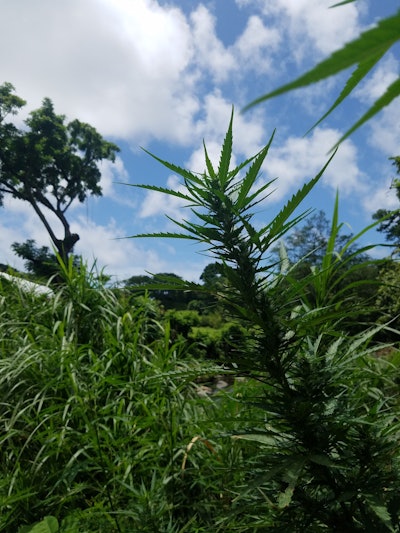 Courtesy of A.C. Moon Cameron
Courtesy of A.C. Moon Cameron
Set to be a fun and safe alternative to drinking, “canna tourism” will allow people to bring medical cards from other places and relax and enjoy a session with other world travelers. This move does not just include medical patients. Anyone 21 or older will be able to stop and enjoy a cannabis lounge, emulating a bar-style atmosphere on the sprawling white sand beaches and cays. Public smoking is still illegal in many parts of the islands.
This licensing opportunity is not yet offered, and the people of the islands hope to partner with investors to create fair and equitable businesses for others to enjoy. The application portal is aimed at being opened by the end of the year following commercial cannabis cultivation.
Many types of cannabis-themed businesses can be established, including bed and breakfasts, wellness retreats, and resorts. Cannabis themes will be erected in the future as a totem to the culture that has stood through massive persecution and is now rebuilding its name’s sake with more purity and protections for the people.
Challenges that can be foreseen may include hurricane-torn areas, old infrastructure, unreliable power utilities and a society that needs modern education on the cannabis industry, as well as at times, extreme weather. Water can also be an issue in remote areas outside the main cities, causing buildouts to be made with solar and water catchment in mind.
An additional challenge is due to water and air travel being governed federally; since cannabis is classified as a Schedule I substance in the U.S., each island will have to create full seed-to-sale platforms on each separate land mass. This includes testing facilities, which are governed by the local health department.
The good people of the U.S. Virgin Islands have lived in what is a renowned corporate tax haven for decades, persecuted and held back with little opportunity, and now spotlighted by scandals, such as those related to convicted sex offender Jeffrey Epstein on Epstein Island.
Cannabis is now bringing in a catalyst for changing, and hopefully empowering, the locals in more diverse ways that can help the culture rebuild and thrive in the new world. Equity and partnerships that can make waves throughout the globally dedicated conscious partnerships could truly benefit from working together with this beautiful island nation.
As I dive into the Caribbean dreams and sail the waters of possibilities with the cool irie vibes of Soca music around, I dedicate daily into researching the Caribbean cannabis industry firsthand, here for my third year, on St. Croix, working with educational bodies to bring the cannabis commerce course to light, as well as helping entrepreneurs and documenting morphological changes in cannabinoids and landrace genetics.






